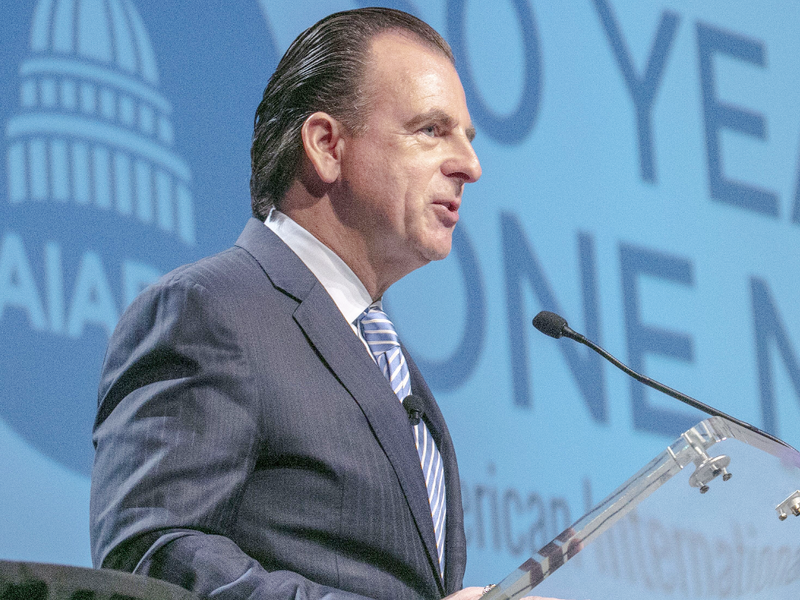
LAS VEGAS — Electric cars and autonomous vehicles are coming to the U.S. and have great potential to disrupt the automotive status quo, but there’s still time for automakers and retailers to embrace the change and incorporate it into their business models, Henio Arcangeli Jr., senior vice president at American Honda Motor Co., told a dealer meeting.
“My advice to you is don’t panic,” Arcangeli told dealers at a Monday luncheon for the American International Automobile Dealers Association, which is celebrating its 50th anniversary. “Instead, think about what you can do to take a larger share of the business that’s out there.”
The Honda executive was talking specifically about dealer fears that electrification can hurt profitability since EVs generally need less service than gasoline-powered vehicles. For example, EVs don’t need oil changes or tune-ups, and their service schedule is more focused on tires, brakes and software.
“There is a real opportunity here for dealers to better compete with third-party repair facilities, which presently service approximately two-thirds of the vehicles today,” Arcangeli said during his keynote address. “As vehicles become even more technical with the advance of electrified, automated and connected technologies, customers will need your business — and for longer than the typical three-year period of a new car.
As part of the AIADA event, dealers welcomed the organization’s incoming chairman, Jason Courter, a Seattle-area Honda dealer. And they celebrated the work of outgoing chair Howard Hakes, a California Toyota dealer who championed the new North American trade accord, traveling repeatedly to Washington to lobby on behalf of dealers on a variety of trade issues.
AIADA members also recognized Jim Lentz, CEO of Toyota Motor North America, who retires on April 1.
Arcangeli spoke on the sidelines of the National Automobile Dealers Association show in Las Vegas, where the threat of EVs and autonomous vehicles to the current retail model was an important topic.
Fortunately, Arcangeli said, the future may not be coming quite as fast as was hyped and feared. Rather, the deployment of electric and autonomous vehicles should come gradually enough for OEMs and dealers to prepare themselves.
“Reading the many news headlines over the past two years, you would have thought car ownership would be a thing of the past. And we all would have arrived today in a driverless, shared vehicle. But that view has begun to change of late,” Arcangeli told retailers of international nameplates like Honda, Toyota, Hyundai, BMW, Volkswagen and Mercedes.
“The notion of a shared vehicle for personal use remains daunting at best. So I believe vehicle ownership will continue to be the dominant means by which the vast majority of customers in the U.S. engage with our products for some time to come,” Arcangeli said. “That means we all must work at advancing the customer relationship and brand loyalty that will enable us to maintain strong and profitable businesses into the future.
The executive noted that Honda is also celebrating its 50th anniversary in the U.S. International automakers and their U.S. dealers have also been change agents for the auto industry, he said, bringing additional competition and consumer choice.